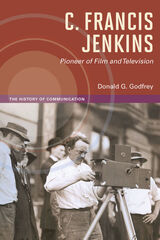
This is the first biography of the important but long-forgotten American inventor Charles Francis Jenkins (1867-1934). Historian Donald G. Godfrey documents the life of Jenkins from his childhood in Indiana and early life in the West to his work as a prolific inventor whose productivity was cut short by an early death. Jenkins was an inventor who made a difference.
As one of America's greatest independent inventors, Jenkins's passion was to meet the needs of his day and the future. In 1895 he produced the first film projector able to show a motion picture on a large screen, coincidentally igniting the first film boycott among his Quaker viewers when the film he screened showed a woman's ankle. Jenkins produced the first American television pictures in 1923, and developed the only fully operating broadcast television station in Washington, D.C. transmitting to ham operators from coast to coast as well as programming for his local audience.
Godfrey's biography raises the profile of C. Francis Jenkins from his former place in the footnotes to his rightful position as a true pioneer of today's film and television. Along the way, it provides a window into the earliest days of both motion pictures and television as well as the now-vanished world of the independent inventor.
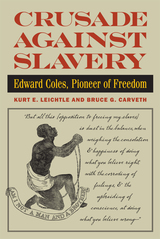
Rejecting slavery from a young age, Coles's early wishes to free his family's slaves initially were stymied by legal, practical, and family barriers. Instead he went to Washington, D.C., where his work in the White House was a life-changing blend of social glitter, secretarial drudge, and distasteful political patronage. Returning home, he researched places where he could live out his ideals. After considerable planning and preparation, he left his family's Virginia tobacco plantation in 1819 and started the long trip west to Edwardsville, Illinois, pausing along the Ohio River on an emotional April morning to free his slaves and offer each family 160 acres of Illinois land of their own. Some continued to work for Coles, while others were left to find work for themselves. This book revisits the lives of the slaves Coles freed, including a noted preacher and contributor to the founding of what is now the second-oldest black Baptist organization in America.
Crusade Against Slavery details Coles's struggles with frontier life and his surprise run and election to the office of Illinois governor as well as his continuing antislavery activities. At great personal cost, he led the effort to block a constitutional convention that would have legalized slavery in the state, which resulted in an acrimonious civil suit brought on by his political enemies, who claimed he violated the law by not issuing a bond of emancipation for his slaves. Although initially convicted by a partisan jury, Coles was vindicated when the Illinois Supreme Court overturned the decisions of the lower courts. Through the story of Coles's moral and legal battles against slavery, Leichtle and Carveth unearth new perspectives on an institution that was on unsure footing yet strongly ingrained in the business interests at the economic base of the fledgling state.
In 1831, after less than a decade in Illinois-and after losing a bid for Congress-Coles left for Philadelphia, where he remained in correspondence with Madison about the issue of slavery. Drawing on previous incomplete treatments of Coles's life, including his own short memoir, Crusade Against Slavery includes the first published analysis of Madison's failure to free his slaves despite his plans to do so through his will and a fascinating exploration of Coles's struggle to understand Madison's inability to live up to the ideals both men shared.
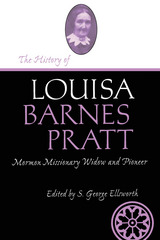
Volume 3, Life Writings of Frontier Women series, ed. Maureen Ursenbach Beecher
In her memoir, and 1870s revision of her journal and diary, Louisa Barnes Pratt tells of childhood in Massachusetts and Canada during the War of 1812, and independent career as a teacher and seamstress in New England, and her marriage to the Boston seaman Addison Pratt.
Converting to the LDS Church, the Pratts moved to Nauvoo, Illinois, from where Brigham Young sent Addison on the first of the long missions to the Society Islands that would leave Louisa on her own. As a sole available parent, she hauled her children west to Winter Quarters, to Utah in 1848, to California, and, in Addison's wake, to Tahiti in 1850.
The Pratts joined the Mormon colony at San Bernardino, California. When in 1858 a federal army's march on Utah led to the colonists' recall, Addision—alienated from the Mormon Church after long absences—chose not to go. Mostly separated thereafter (Addison died in 1872), Louisa settled in Beaver, Utah, where she campaigned for women's rights, contributed to the Woman's Exponent, and depended on her own means, as she had much of her life, until her death in 1880.
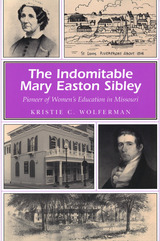
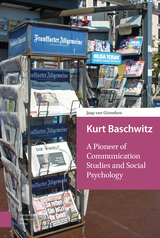
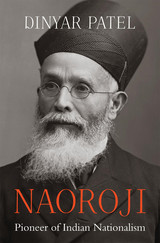
Winner of the 2021 Kamaladevi Chattopadhyay–NIF Book Prize
The definitive biography of Dadabhai Naoroji, the nineteenth-century activist who founded the Indian National Congress, was the first British MP of Indian origin, and inspired Gandhi and Nehru.
Mahatma Gandhi called Dadabhai Naoroji the “father of the nation,” a title that today is reserved for Gandhi himself. Dinyar Patel examines the extraordinary life of this foundational figure in India’s modern political history, a devastating critic of British colonialism who served in Parliament as the first-ever Indian MP, forged ties with anti-imperialists around the world, and established self-rule or swaraj as India’s objective.
Naoroji’s political career evolved in three distinct phases. He began as the activist who formulated the “drain of wealth” theory, which held the British Raj responsible for India’s crippling poverty and devastating famines. His ideas upended conventional wisdom holding that colonialism was beneficial for Indian subjects and put a generation of imperial officials on the defensive. Next, he attempted to influence the British Parliament to institute political reforms. He immersed himself in British politics, forging links with socialists, Irish home rulers, suffragists, and critics of empire. With these allies, Naoroji clinched his landmark election to the House of Commons in 1892, an event noticed by colonial subjects around the world. Finally, in his twilight years he grew disillusioned with parliamentary politics and became more radical. He strengthened his ties with British and European socialists, reached out to American anti-imperialists and Progressives, and fully enunciated his demand for swaraj. Only self-rule, he declared, could remedy the economic ills brought about by British control in India.
Naoroji is the first comprehensive study of the most significant Indian nationalist leader before Gandhi.

Dean of the Harvard Medical School and School of Public Health in the 1920's and '30's,David Edsall was one of the leaders in a period of great change and progress in medicine. At the beginning of Edsall's career, a doctor's chief weapons were his informed mind and trained senses. By the end of it, the permanent alliance of the sciences and medicine had profoundly altered the doctor's practice and his education. It was a time of struggle, of conflict, and of enduring accomplishment.
Edsall was at the center of this revolutionary effort in three leading schools of medicine: the University of Pennsylvania, Washington University in St. Louis, and Harvard. He began his career in Pennsylvania as recording clerk to the famous Dr. William Pepper, Jr., at the same time making scientific contributions in metabolism through his work in the Pepper Laboratory of Clinical Medicine. By 1907 he had become Professor of Therapeutics and Pharmacology. In 1910 and '11, for one stormy year, he was the school's Professor of Medicine. This was a key year -in 1910 the publication of Abraham Flexner's Medical Education in the United States and Canada had led to the eradication of one quarter of U. S. medical schools and radical reform of many others.
From Pennsylvania Edsall went to St. Louis as Professor of Preventive Medicine, and his part in the reform of that medical school is both controversial and fascinating.
,Edsall's appointment in 1912 to a double post at Harvard and the Massachusetts General Hospital brought him to Boston -the field of his major contributions. This remarkable period was the day of such people as Harvard's Walter Cannon, Otto Folin, Harvey Cushing, Alice Hamilton, L. J. Henderson. It saw the founding of the School of Public Health, the major endowment of the Medical School. In his ten years at the hospital and his seventeen years as dean, as in his influence as a trustee of the Rockefeller Foundation, Edsall gave direction to many developments in American medicine which bear his mark to this day.
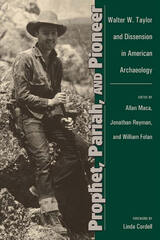
-Ian Hodder, Current Anthropology
Nearly everyone in the archaeological community read Taylor’s book at the time, and despite the negative reaction, many were influenced by it. Few young scholars dared to directly engage and build on his “conjunctive approach,” yet his suggested methods nevertheless began to be adopted and countless present-day authors highlight his impact on the 1960s formation of the “New Archaeology.” In
Prophet, Pariah, and Pioneer, peers, colleagues, and former students offer a critical consideration of Taylor’s influence and legacy. Neither a festschrift nor a mere analysis of his work, the book presents an array of voices exploring Taylor and his influence, sociologically and intellectually, as well as the culture of American archaeology in the second half of the twentieth century.
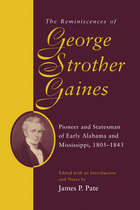
Provides a fascinating glimpse into the early history of the Mississippi-Alabama Territory and antebellum Alabama
The two sections of the Reminiscences of George Strother Gaines form one of the most important primary sources on the early history of Alabama and Mississippi. The Reminiscences cover the years 1805 to 1843, during which time Gaines served as assistant factor and then factor of the Choctaw trading house (1805-18), cashier of Tombeckbee Bank in St. Stephens (1818-22), a merchant in Demopolis (1822-32), and finally a banker and merchant in Mobile (1832-43). In addition, Gaines played a key role in Indian-white relations during the Creek War of 1813-14, served a two-year term in the Alabama Senate (1825-27), led a Choctaw exploring party to the new Choctaw lands in the West following the Treaty of Dancing Rabbit Creek (1830-31), and served as the superintendent for Choctaw removal (1831-32).
Gaines dictated his Reminiscences in 1871 at the age of eighty-seven. Part of the Reminiscences, referred to as the "first series," was originally published in five issues of the Mobile Register in June-July 1872 as "Notes on the Early Days of South Alabama." Nearly a century later, the first series and the previously unpublished second series, "Reminiscences of Early Times in Mississippi Territory," were published in a 1964 issue of the Alabama Historical Quarterly as "Gaines' Reminiscences."
In this first book-length edition of the Reminiscences, James Pate has provided an extensive biographical introduction, notes, illustrations, maps, and appendixes to aid the general reader and the scholar. The appendixes include additional unpublished primary materials-including interviews conducted by Albert James Pickett in 1847 and 1848 that provide further information about this important early pioneer and statesman.
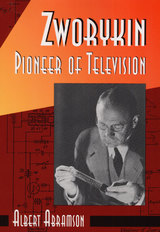
"His achievements rank him with Thomas Edison and Alexander Graham Bell," states Albert Abramson in this discerning, often dramatic biography of Vladimir Kosma Zworykin, the Russian-born scientist who "did more to create our present system of cathode-ray television than any other person."
READERS
Browse our collection.
PUBLISHERS
See BiblioVault's publisher services.
STUDENT SERVICES
Files for college accessibility offices.
UChicago Accessibility Resources
home | accessibility | search | about | contact us
BiblioVault ® 2001 - 2025
The University of Chicago Press









